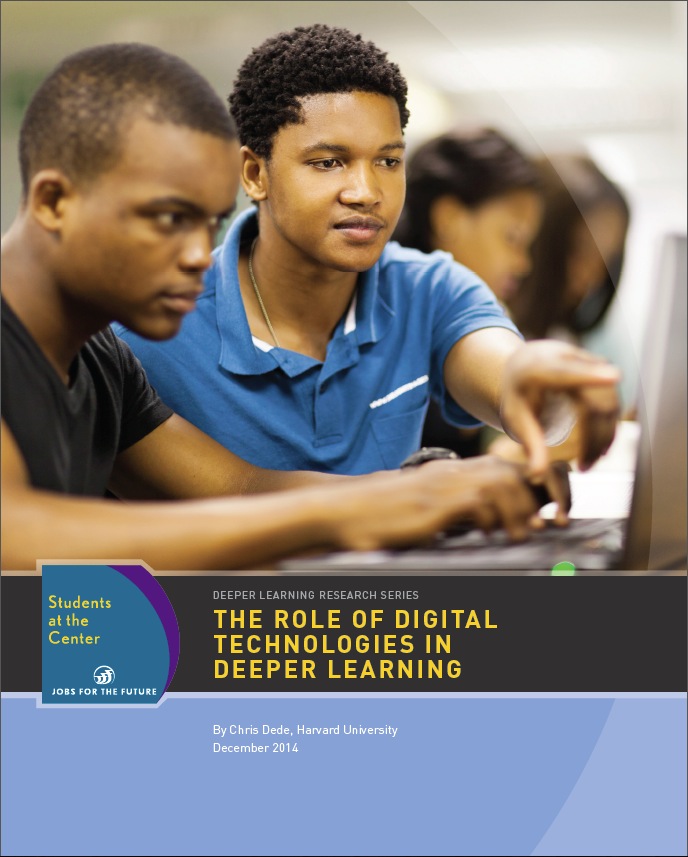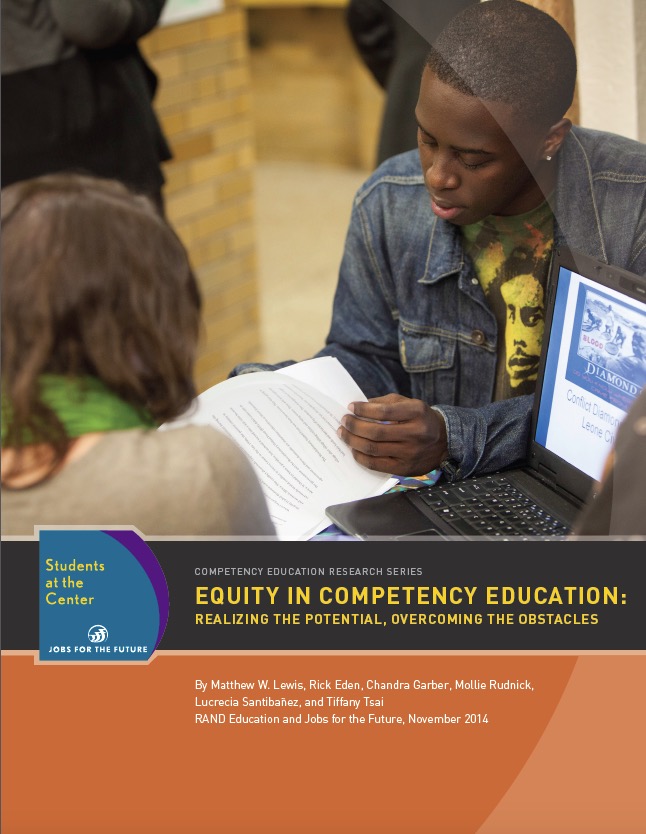Disconnected Young Adults in New England

This study provides an overview of the scope, scale, and consequences of the current disconnected young adult challenge. The authors offer policy recommendations to make the education system more flexible for this high-risk population. In New England alone, 10%, or 142,000 young adults ages 18-24 are “disconnected,” or leaving the public education system without the… Read More ›
Ready for the Future: The Role of Performance Assessments in Shaping Graduates’ Academic, Professional, and Personal Lives

The perspectives of high school graduates offer a valuable source of understanding for educators and policymakers on how high quality performance assessments can prepare all students for work and college. Through a series of in-depth interviews with graduates from three Boston Public Schools with established performance-based assessment systems, the study analyzes graduates’ preparation for future… Read More ›
Including Performance Assessments in Accountability Systems

This executive summary seeks to understand previous efforts at scaling up the use of performance assessments across districts and states. Through systematic description and comparison of seven large-scale initiatives, as well as analogous efforts from teacher certification, medicine, and law, the summary identifies the strengths and vulnerabilities in each initiative. Source Organization: Center for Collaborative Education, Nellie Mae… Read More ›
Meaningful Linkages between Summer Programs, Schools, and Community Partners

This report draws on findings from in-depth interviews conducted by the National Center for Summer Learning with 11 summer programs that have successfully developed collaborations between summer programs, schools and community organizations. Source Organization: National Summer Learning Association VISIT THE RESOURCE
Building Multiple Pathways: Approaches, Relevant Programs and Implementation Considerations

This report from the Nellie Mae Education Foundation offers alternatives, or “multiple pathways” for learners to be prepared for post-secondary options. High school graduation rates for students from traditionally underserved populations tend to be low—figures show that students from families with income in the bottom 20% dropped out of high school at six times the rate… Read More ›
The Learning Season: The Untapped Power of Summer to Advance Student Achievement

This report examines the benefits of summer learning opportunities, drawing on research that attributes the achievement gap to a lack of access to quality summer programs. Recommendations for policymakers and researchers include tapping philanthropic organizations, spreading awareness, and collecting additional data on underserved populations. Source Organization: The Nellie Mae Education Foundation VISIT THE RESOURCE
Critical Hours: Afterschool Programs and Educational Success

This report draws on research from a range of fields to establish the context for afterschool programs and their role in academic success. By examining afterschool programs, the report provides an overview of positive outcomes that set students up for engaged, lifelong learning. Experiences during adolescence shape students’ futures as learners and individuals. Afterschool time… Read More ›
Preparing for the Future: Employer Perspectives on Work Readiness Skills

The UMass Donahue Institute recently collaborated with the Massachusetts Business Alliance for Education (MBAE) on a project designed to inform educators and policy-makers about the work-readiness skills that employers expect of Massachusetts high school graduates, and to describe the skills and characteristics these corporations require for entry-level positions with potential for growth and advancement. Institute… Read More ›
Liberty Mutual Mentoring Initiative: Mentoring. Modeling. More.

This report highlights key findings of the multi-phased research study conducted by the Donahue Institute. In 2003, Liberty Mutual launched the Liberty Mutual Mentoring Initiative (LMMI), a $1 million commitment to mentoring that provides grants and technical assistance to mentoring programs throughout Massachusetts, as well as funds relevant to research. In 2004, Liberty Mutual, in… Read More ›
Promoting Grit, Tenacity, and Perseverance: Critical Factors for Success in the 21st Century

This paper addresses non-cognitive skills necessary to thrive int the 21st century. According to the authors, these non-cognitive skills are essential to an individual’s capacity to strive for and succeed at long-term and higher-order goals, and to persist in the face of the array of challenges and obstacles encountered throughout schooling and life. The authors… Read More ›
The Role of Digital Technologies in Deeper Learning

To compete in today’s global, knowledge-based, innovation-centered economy, young people must go beyond a high school diploma and acquire not just academic knowledge, but cognitive, intrapersonal, and interpersonal capacities. That is, they must engage in deeper learning. As schools shift away from traditional education models in favor or providing deeper learning environments, they are required… Read More ›
Equity in Competency Education: Realizing the Potential, Overcoming the Obstacles

This second paper of Students at the Center’s Competency Education Research Series examines equity concerns in competency education through the lens of family income, exploring the effects and implications, as well as proposing potential mitigations. Equity is both a central goal and a fundamental value of competency education. Competency-based approaches are designed to promote equity… Read More ›